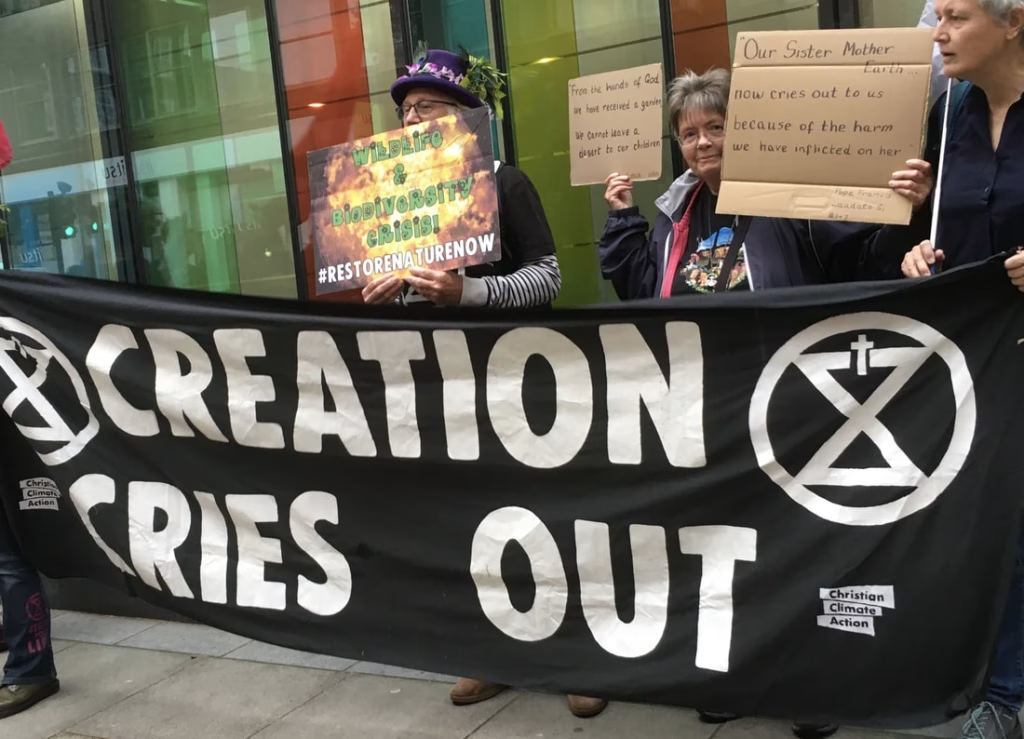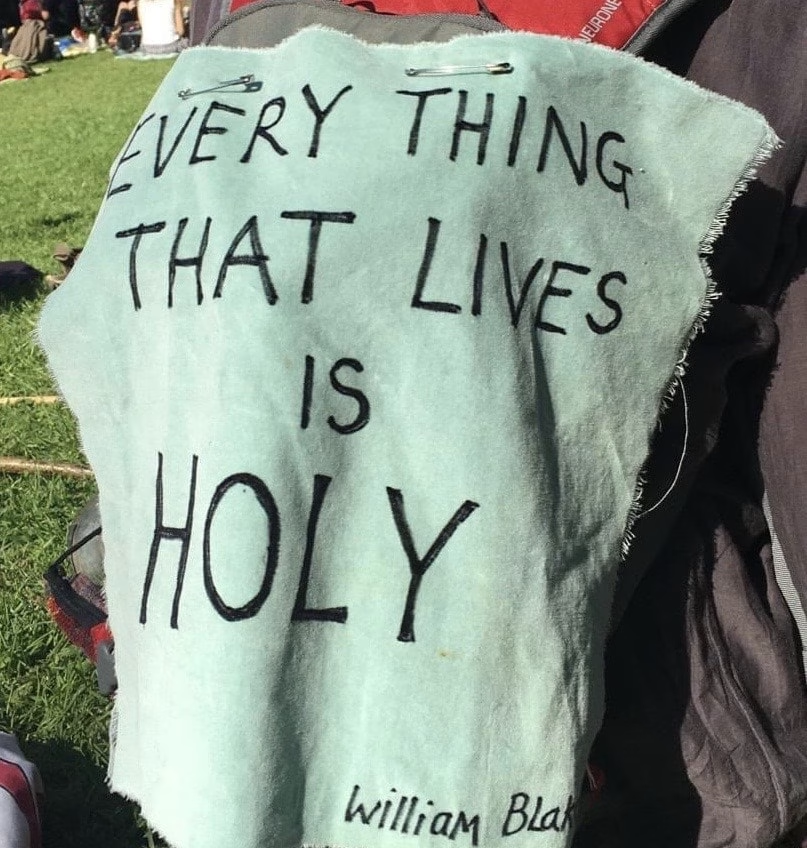Christian Climate Action’s response to the Rewild the Church campaign

Editor’s Note: We know that there are so many members of the church community who care about nature and would like to see the Church Commissioner’s rewild their land. In this guest blog, Christian Climate Action give their response to our new Rewild the Church campaign.
The creation accounts in the book of Genesis contain profound teachings about how human life is grounded in three fundamental and closely intertwined relationships: with God, and with our neighbour, and also with the earth itself. These threads are woven through scripture: in Psalm 24:1 we hear “The earth and everything on it belong to the Lord”. The more prosaic Luke 12:6 says: “Are not five sparrows sold for just two pennies? And not one of them is forgotten before God.” Colossians 1:16 and 17 tells us that: “all things in heaven and on earth were created through Him and for Him” and that “In Him all things hold together.”
The profound truth of these narratives is that we are part of an ecology, part of a whole, all made for the glory of God.
To look at it another way, if we love God with all our heart and soul and mind and strength, we cannot be bystanders to the destruction of Creation because the Earth is God’s and all life within it matters to God.
The science tells us clearly that we are destroying this community of life, the word desecration would not be too strong a word for what we are doing to the earth. The UK is classified as one of the world’s most nature-depleted countries and according to a landmark study published last year, wildlife is continuing to decline at an alarming rate. Nearly one in six of the more than ten thousand species assessed are at risk of being lost, and this figure is much higher for some groups such as birds (43%), amphibians and reptiles (31%), fungi and lichen (28%) and terrestrial mammals (26%). There have also been declines in the distributions of more than half (54%) of our flowering plant species. How do we as people of faith living in this critical time respond to all this, to the call to love God with not only all our hearts and souls and minds but also with all our strength? How do we try to return ourselves to living in right and just relationship with the whole community of life?

Addressing the two crises of climate and nature is one of the greatest challenges facing us and practically, nature based solutions have a key role to play in addressing both. This crucially includes restoring land to nature and the creation or restoration of peatlands, saltmarshes, woodlands, grasslands and other habitats. Land use must be scrutinised through this lens and we need ambitious targets to secure these things at the necessary speed and scale. Christian Climate Action is supporting this campaign by Wild Card because we believe that the Church of England as a significant landowner should be leading the way on this. Jesus instructed us that we are to be “the salt of the earth” and “the light of the world.” The Church should be visibly and actively working as preserver and transformer, leading the way and giving light to everyone. It needs to live its Fifth Mark of Mission, striving to safeguard the integrity of creation, and sustain and renew the life of the earth.
So how do we as individuals respond? We respond first and foremost by praying for the church to show this leadership, but there is an equally clear mandate for action – faith must have works. This calls us not just to prayer and to personal change but to prophetic action that challenges the injustice of inaction and seeks a commitment from our institutions to redress the situation. We must look for ways to speak out to the Church individually and in community with other voices about taking meaningful action to safeguard the integrity of creation. You and your church community are warmly invited to join us in this.
Our blog posts are written by our core team and guest bloggers. If you have an idea for a blog post please pitch it to us: info@wildcard.land
ARCHIVES
- July 2025
- June 2025
- May 2025
- April 2025
- March 2025
- February 2025
- December 2024
- November 2024
- October 2024
- September 2024
- August 2024
- July 2024
- June 2024
- March 2024
- February 2024
- January 2024
- December 2023
- November 2023
- August 2023
- July 2023
- May 2023
- February 2023
- January 2023
